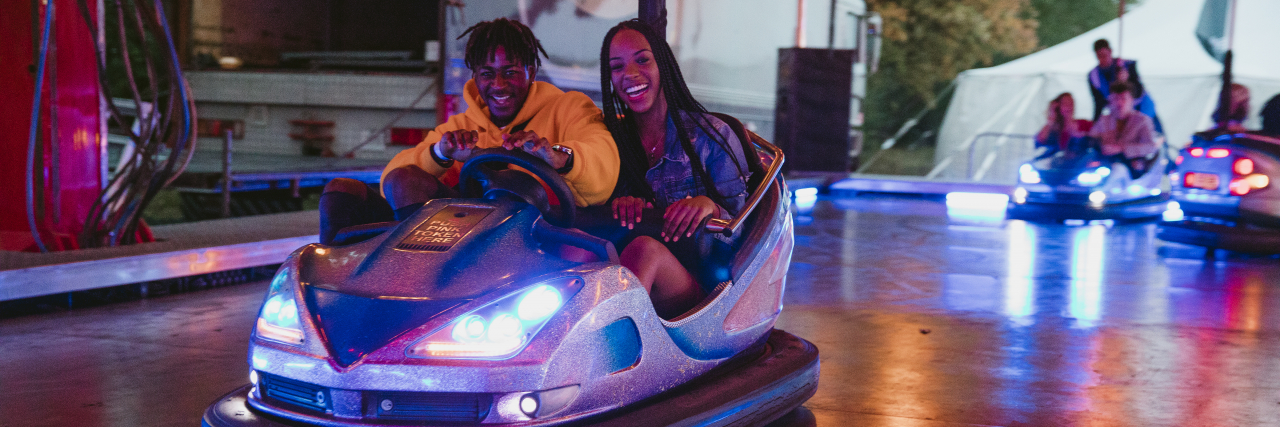You, Me, and My C-PTSD: 3 Things to Consider When Planning a First Date
As someone who struggles to turn their brain “off,” dates can be a very stressful situation.
I live with complex post-traumatic stress disorder (C-PTSD) and it causes me to be hyper vigilant whenever I’m out of the house, and it’s led to me having some issues with social anxiety that I don’t remember living with before C-PTSD. Not being able to turn my brain “off” means I’m always thinking about the people directly around me and trying to analyze or guess what their next moves may be, and then shifting my own self accordingly. This isn’t just with partners, either. It’s with every single person around me wherever I am. I’m always in “go mode,” which is almost as exhausting as dating itself.
Knowing my triggers, I tend to have a tight grip over the situations I’m in, but with dating comes adventure, new places, and people who I’d rather not have an episode in front of. After some thought, I’ve come up with three major things to consider when it comes to figuring out date activities (especially first dates) for people with C-PTSD and/or other anxiety disorders.
1. Forgo busy environments, jump into nature.
I am a sucker for a botanical garden. Typically gardens are quiet, serene, and beautiful. On top of that, there’s enough space that you aren’t surrounded by other people bustling about, meaning there’s a lot less stimuli to cause anxiety.
If you don’t want to do a botanical garden, consider other options like nature walks, hiking, lazy rivers and creeks, or quiet beaches.
2. Restaurants outside of peak hours.
When there’s less people, there’s less people to watch and survey intentionally. Sometimes going to a restaurant outside of peak hours is a good way to have a calmer, and quieter, meal. Yes, happy hours have better deals, but what’s more important is comfortability over BOGO drinks.
3. Interactive activities that keep your focus.
This can vary, but hands on dates can be a great idea, especially when they take all your attention. That being said, knowing your (or your date’s) triggers are really important. For example, if you have a dog related PTSD trigger, you may not want to go on a date at a puppy store. If loud noises or bright lights trigger you, maybe an arcade isn’t right. But other hands on activities (bowling, ice skating, top golf) could be great.
At the end of the day, remember that knowing yourself is really half the battle. It’s super important, because if you don’t know yourself, your triggers, and the situations that could make your brain glitch, then it’ll be harder figuring out what you do and don’t feel comfortable doing. Also, communication is important. Opening up to someone new is hard, but there are ways to communicate with them about your traumas without actually telling them about your traumas. If they get pushy, remember “no means no.”
You deserve to have fun on dates, without having a panic attack of some sort. Promise.
Happy dating!
Getty image by SolStock

